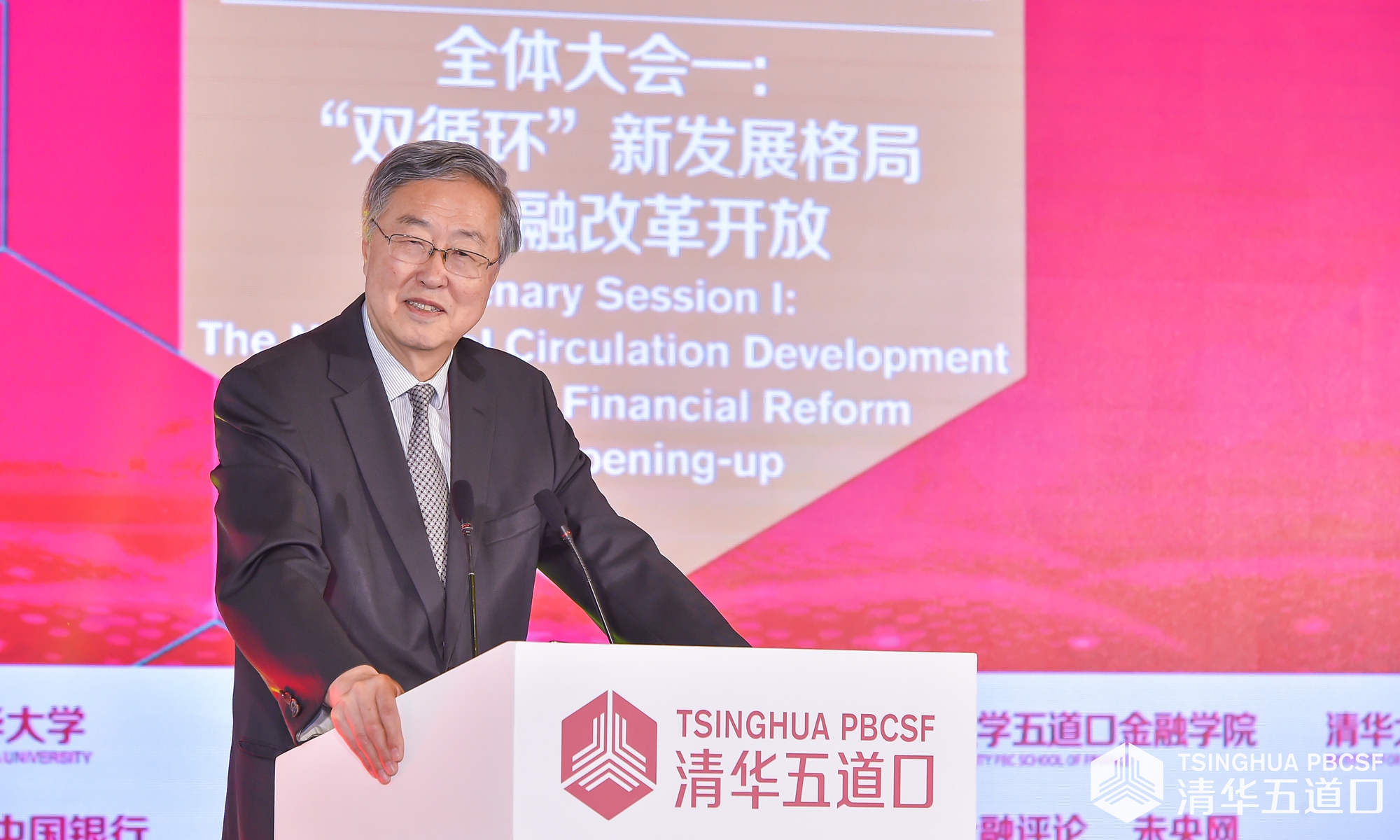
Photo: Courtesy of Tsinghua PBCSF
China's experimental digital yuan is not designed to replace the US dollar's global dominance, former central bank governor Zhou Xiaochuan said on Saturday, in response to speculations over the country's push for its digital sovereign currency.
Discussions of the digital yuan, known as e-CNY or Digital Currency Electronic Payment (DCEP), especially in foreign media, tend to give rise to some misunderstandings, Zhou said in a keynote speech at the Tsinghua PBCSF Global Finance Forum in Beijing.
The two-day forum, held both online and in-person, ran through Sunday.
There are many foreign media reports that the DCEP push, however strong it might be, can't replace the dominance of the US dollar, said Zhou, former governor of the People's Bank of China (PBC), the country's central bank.
However, the original purpose of the DCEP was not to replace the US dollar as a global reserve and payment currency, according to Zhou, now president of the China Society for Finance and Banking and honorary dean of Tsinghua PBCSF.
The DCEP project, primarily built on modernizing China's payment system and playing catch-up in the era of the digital economy, aims to raise efficiency, reduce costs and serve the retail payment segment in particular, said the former PBC chief.
There have also been conjectures in foreign media that link the digital yuan closely to the yuan's internationalization, claiming that the DCEP doesn't help much when it comes to globalizing the yuan.
Zhou said that efforts to modernize and digitize the yuan-denominated payment system would help in increasing the yuan's status. However, the yuan's internationalization is contingent upon the country's institutional and policy choices, and its reform and opening-up progress, he said, and technical factors are only helpful to some degree.
The influential policymaker, who headed the PBC for over 15 years before being replaced by current central bank governor Yi Gang in 2018, also rebutted claims that the PBC-backed DCEP is intended to become a replacement for third-party payment solutions.
The DCEP's research and development (R&D) team under the auspices of the PBC is composed of major commercial banks, telecom carriers and third-party payment institutions. They are all in the same boat, and discrepancies and arguments on some occasions aren't tantamount to infighting or replacing each other, he stressed, comparing the teamwork to cooperation between players in volleyball.
The digital yuan's "controllable anonymity" is justifiable, Zhou argued, citing the need to strike a balance between the digital yuan's privacy protections and clampdowns on money laundering, drug deals and cross-border gambling.
In addition to privacy protection, there needs to be some monitoring of certain activities, he said, noting that privacy concerns should not be used as an excuse to derogate the progress with DCEP.
